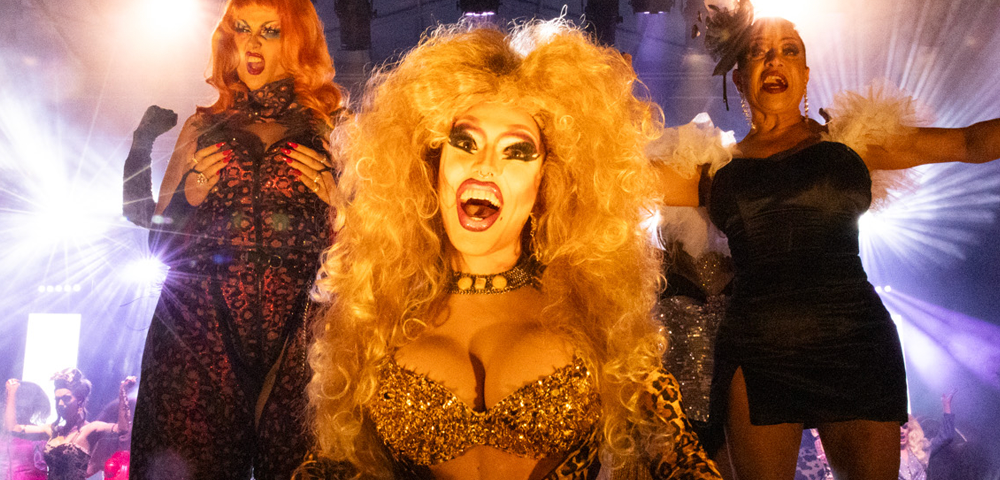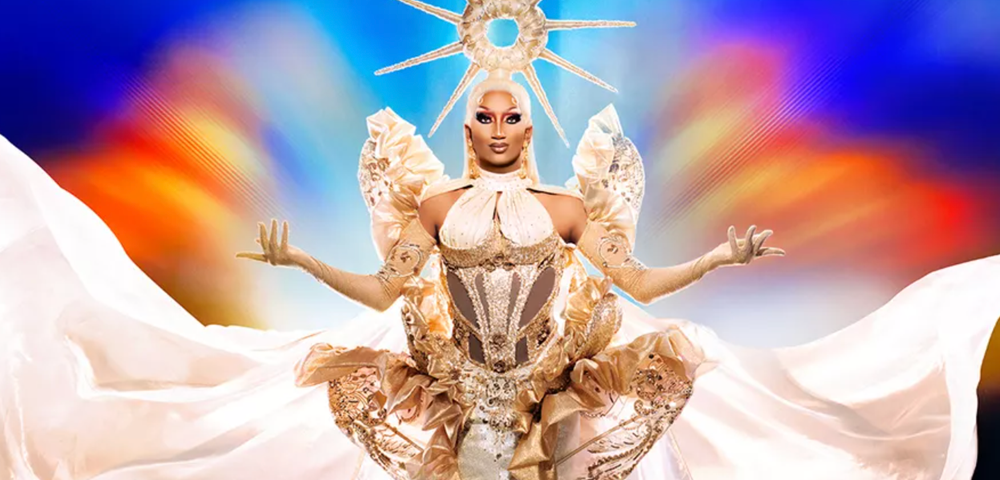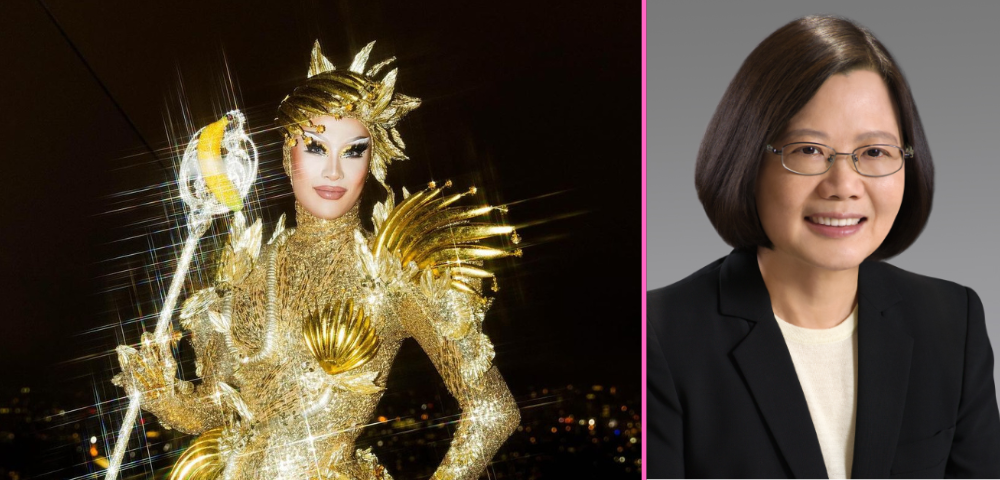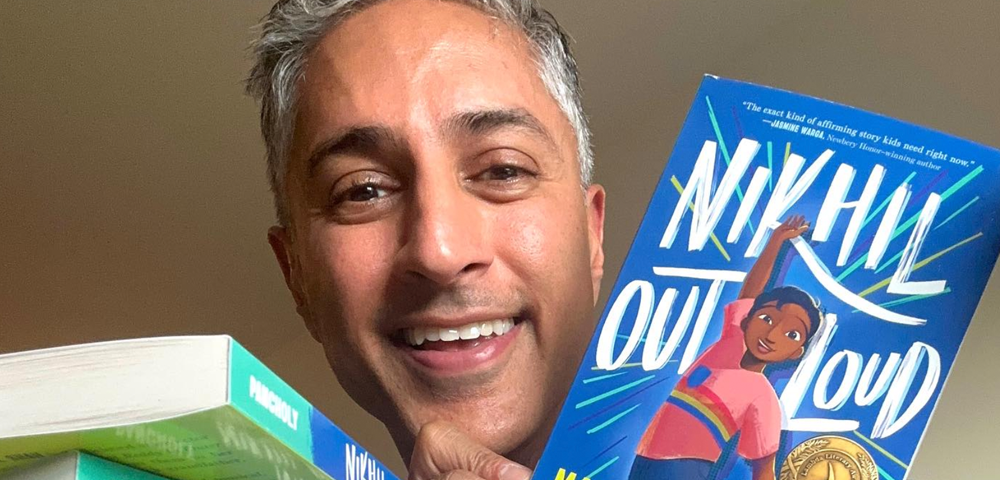
Injecting new life into drag
It was a year of firsts for US drag queen reality competition, RuPaul’s Drag Race. From its engagement with viewers, its controversial reveal of the winner and the disqualification and subsequent booting out of one of its contestants, it was easily the show’s most exciting season.
But nothing was more surprising than the self-described “punk rock sex clown” who took home the crown as America’s next drag superstar.
Sharon Needles embodied a dramatic shift in the series, not so much planned as forced by its massive following – many of whom watch weekly from Australia despite it not officially (read: legally) airing on local screens.
Inspired by the ditzy, over-painted goddesses of the ’80s like Elvira and Married with Children’s Peggy Bundy, 30-year-old Needles – born Aaron Coady – made quite the impression early on with her spooky aesthetic.
But long-time followers of the show had little hope for her making the top three, let alone winning, based on its previous alumni.
In the end, season four risked becoming typified by bullying, racial slurs and sabotage. In many ways, RuPaul had little choice but to declare Needles her champion, lest she have a new Stonewall riot on her hands.
It seemed fitting to talk to Needles on the International Day Against Homophobia (IDAHO), given the treatment she endured on the show from one of her arch-rivals. But it was clear she was still getting used to the idea of cult status.
“I never set out to be a role model,” she said.
“All my role models growing up weren’t role models, most of them were arseholes or drug addicts or punk rockers.”
Another first for the series was the pivotal role of Drag Race’s behind-the-scenes sister show Untucked. The program, which features the competition’s candid conversations and occasional backstage bitch fight, had so many of the season’s defining moments that it threatened to eclipse the main stage action.
Last year delivered little in the way of recompense for the bullies backstage in the Heathers vs. Boogers divide that saw the more glamorous pageant queens belittle their less polished or more unusual co-stars – indeed, the Heathers ringleader took home the crown.
But the arrival of the It Gets Better-influenced generation has seen a dramatic shift in the way fans viewed what was previously dismissed as “attitude” or simply an overly competitive streak, as a lack of sisterhood and community.
None were more surprised at the massive support Needles received than the queen herself.
“I really can’t pinpoint it. You know, these kids definitely see something in me that I never saw in myself,” she admitted.
“I think, perhaps, because of my honesty they see a bit of themselves in Sharon Needles.”
It’d be unfair not to give the country Iowa-born queen much of the credit. She was a champion of the underdog that fans could easily rally around. She was incredibly witty and talented, and refused to engage with one of the more irritating elements of Drag Race, which is the tendency of host RuPaul and her judges to prioritise pageant realness and fashion over iconoclastic performance or character
“My favourite drag is bad drag. I love a terrible performance. They’re so inspiring, they’re so funny and they’re so genuine,” Needles said.
“Anytime someone boos you off stage, it’s just applause from ghosts.”
If the show had never seen a contestant so feverishly backed as Needles, then it also hadn’t seen a more disliked and central villain as Texan showgirl Phi Phi O’Hara.
O’Hara’s behaviour towards Needles and several other contestants saw some serious shade thrown her way by the rest of the cast in the show’s reunion special. When fellow contestant Jiggly Caliente revealed she’d been betrayed by O’Hara and announced in tears, “I thought you were my sister,” the live audience looked ripe to lynch her right there.
“When I saw the negative backlash I did feel bad, but I kind of thought ‘Well, that’s what you get for being a bitch on TV. You’ve got to sleep in the bed you made’,” Needles said.
“We spent a lot of time together being in the top three and to say we weren’t family would be wrong. But do we chat on the phone as sisters? No.”
As to the reasons behind the booting of controversial contestant Willam Belli, Needles wouldn’t be drawn on whether the excuse given during the finale was completely legitimate.
“Do I think that her answer was all she did to get kicked off the show? No,” she said.
“But do I know the real answer? No.”
Needles admitted the finale, which saw RuPaul film three endings of each performer winning so the live audience wouldn’t leak the news, was disappointing despite her understanding the motivations behind the decision.
“I applaud RuPaul for doing everything she could to keep the winner hush-hush. All the other years it was leaked, it really ruined it for me,” she said.
“The only thing I regret is that my crowning had to be disingenuous, it had to be fake.”
Alongside recent work with trans icon Amanda Lepore and a flood of roles in everything from a US production of The Rocky Horror Show to a play at San Francisco’s Castro Theatre called Silence of the Trans, Needles also said a visit to Australia was on the cards.
“A huge inspiration to me growing up was Priscilla, Queen of the Desert. I’ve always had a huge thing for Australia. I can recite the movie from beginning to end,” she said.
“It was such a pioneering force in human rights and understanding of drag performers and the social climate in Australia.
“Here in America we had To Wong Foo which is a bullshit, fucking leotarded movie that makes no goddamn sense and just perpetuated more misunderstanding of the drag scene here.”
Needles also said she had nothing but respect for her sisters Down Under.
“There are no queens like an Australian queen,” she said.
“I’ve seen queens whose whole costumes take a float to get them down the street.”
Until she makes her way to our shores, however, she did have a message to queer youth struggling with their own bullies.
“Anyone being judged for who they are, don’t bend, don’t change for anyone. Not your parents, not the adversity from the straight community and not for the assimilation of the gay community,” she said.
“Be yourself, when in doubt freak ’em out.”










Sharon Needles should also look to Australia’s own Teresa Green for inspiration. She was doing it over 30 years ago. http://www.youtube.com/user/Silverfoxyfifty?feature=watch
I DEMAND AN AUSTRALIAN TOUR
SHARON NEEDLES IS GOD. Or, as i’m sure she’d prefer, Queen of the underworld.